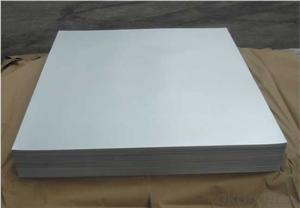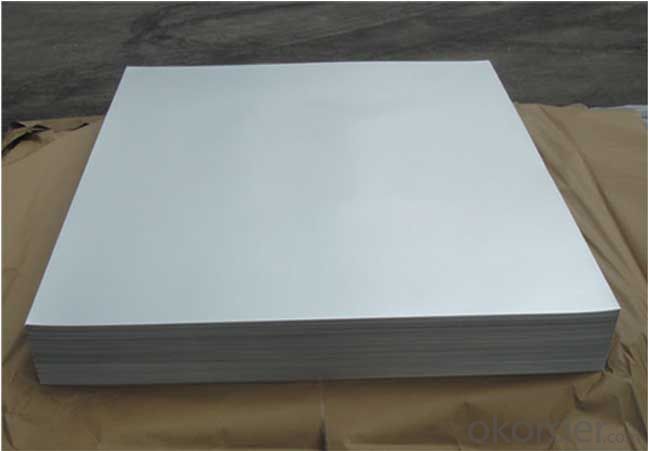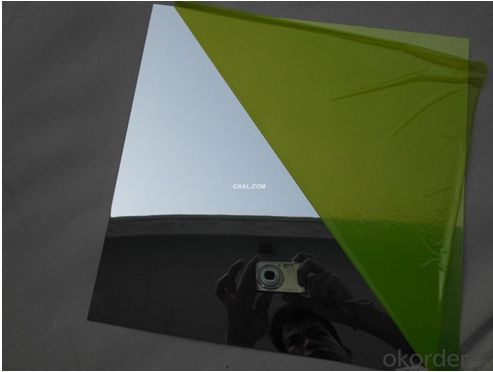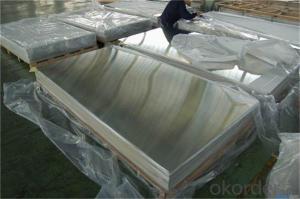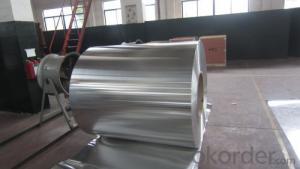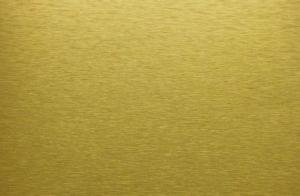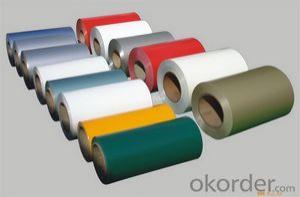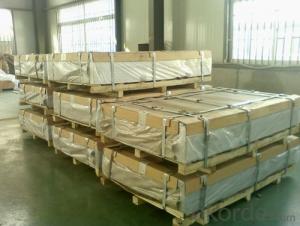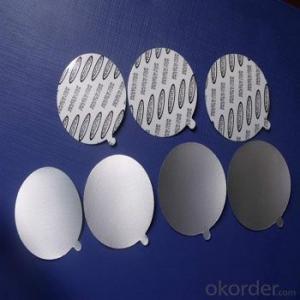Customized 3003 Aluminum Coil - Aluminium /Aluminio /Alumina Sheet 1050 1060 1100 3003 3105 5005 5052 5754 5083 6061 6082
- Loading Port:
- Shanghai
- Payment Terms:
- TT OR LC
- Min Order Qty:
- 5 m.t.
- Supply Capability:
- 10000 m.t./month
OKorder Service Pledge
OKorder Financial Service
You Might Also Like
Specification
1.Structure of Aluminum Sheet Description:
Construction material with good ductility, polishing ability and corrosion resistance, good electrolytic oxidation, suitable for welding. Have good plasticity qualities in an annealed state suitable when hardened.
2.Main Features of Aluminum Sheet:
Good Ductility
Polishing Ability and Corrosion Resistance
High Quality
Competitive Price
3. Aluminum Sheet Images:
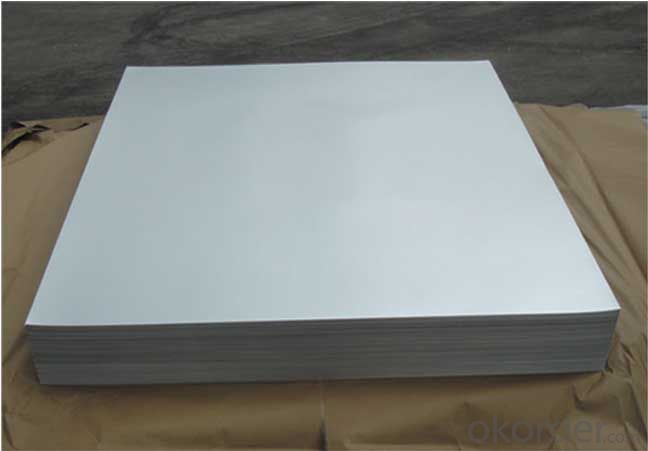
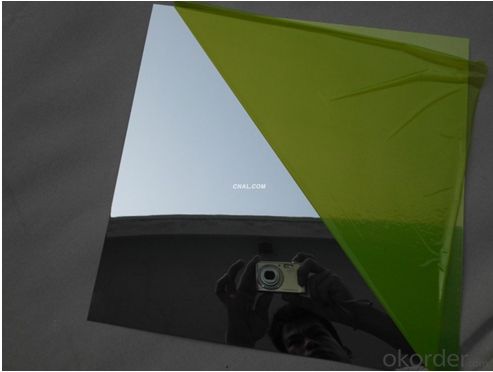
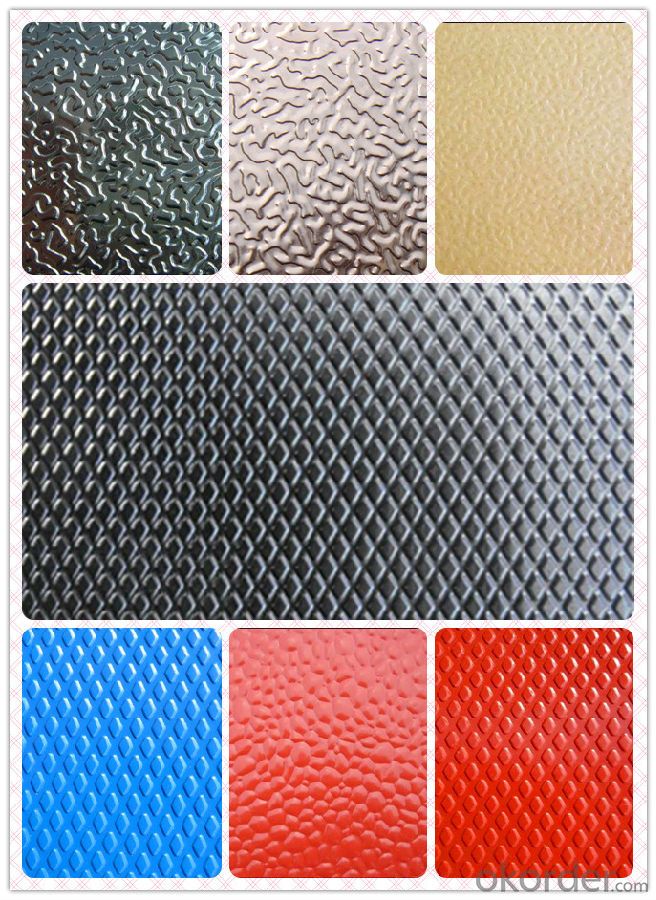
4. Aluminum Sheet Specification:
| Aluminium Alloy | Thickness (mm) | Width (mm) | Length (mm) | Temper | |
| A1050,A1060,A1070,A1100 | 0.15-200 | 20-2620 | 20-8000 | O,H12,H14,H16,H18,H22,H24,H26 | |
| A3003,A3004,A3105 | 0.15-200 | 20-2620 | 20-8000 | O,H12,H14,H16,H18,H22,H24,H26 | |
| A5052,A5005,A5083,A5754 | 0.15-200 | 20-2620 | 20-8000 | O,H12,H14,H34,H32,H36,H111,H112 | |
| A6061,A6082,A6063 | 0.15-200 | 20-2620 | 20-8000 | T4,T6,T651 | |
| A8011 | 0.15-200 | 20-2620 | 20-8000 | O,H12,H14,H16,H18,H22,H24,H26 | |
| Material process | CC AND DC | ||||
| Customerize size | Size can be produced as per clients requirement | ||||
| Surface | Mill finish ,Color coated(PVDF& PE),Stucco Embossed ,Bright Polish,Anodizing | ||||
| Mirror,Brush,Perforated,Tread plate ,Corrugated etc | |||||
| Quality Standard | ASTM B209,EN573-1 | ||||
| MOQ per size | 2 tons | ||||
| Payment Terms | TT OR LC OR DP at sight | ||||
| Delivery time | Within 25 days after receipt the lc or deposit | ||||
| Material Quality | Tension levelled ,flat ,Free of defects like oil stain,Roll Marks,Waves,Dents | ||||
| scratches etc ,A+++ quality, production process passed sgs and bv inspection | |||||
| Application | Construction ,Building,Decoration ,Curtain Wall ,Roofing,Mould,Lighting, | ||||
| curtain wall, ship building,Aircraft,Oil Tank ,Truck Body etc | |||||
| Packing | Standard export worthy wooden pallets,and standard packing is about 2 tons/pallet | ||||
| Pallet weight also can be as per client's requirement | |||||
5.FAQ
Q1.How long have you been in this product?
A1:More than 10 years.
Q2. What's the minium quantity(MOQ)?
A2. 5 Metric tons
Q3. How long is shipping time?
A3. 7 (ready-made products)-25 days(OEM)
Q4. How do you guarantee the quality?
A4. 1. Cooperating and Exchaning experience with sevral quoted aluminum companies
2. Japanese and Swiss production line and skilled works (regular training and testing)
3. more than 10 years production experience.
Q5. Do you have after sale service?
A5. Yes. Any quality problem occurs within one year, pls take photoes,we will be responsible.
- Q: How are aluminum coils processed for specific surface finishes?
- Aluminum coils are processed for specific surface finishes through various methods such as mechanical polishing, chemical etching, anodizing, or coating. These processes help achieve desired appearances, textures, and protective coatings on the aluminum surface.
- Q: Can aluminum coils be fabricated or formed into different shapes?
- Yes, aluminum coils can be fabricated or formed into different shapes. Aluminum is a malleable metal, which means it can be easily shaped and manipulated without cracking or breaking. Coil fabrication techniques such as bending, rolling, and stamping can be used to transform aluminum coils into various shapes and designs. These coils can then be further processed or assembled to create products with specific geometries, such as automobile parts, kitchen utensils, electrical components, or even architectural structures. The flexibility of aluminum as a material allows for a wide range of possibilities when it comes to shaping and forming it into different configurations.
- Q: How are aluminum coils protected against oxidation during storage?
- Aluminum coils are protected against oxidation during storage by applying a thin layer of protective coating or by storing them in a controlled environment, such as a dry and moisture-free area. This prevents exposure to oxygen and moisture, which are the main factors contributing to oxidation.
- Q: Are aluminum coils suitable for architectural cladding applications?
- Yes, aluminum coils are suitable for architectural cladding applications. Aluminum is a versatile material that offers a range of benefits for cladding purposes. Firstly, aluminum is lightweight, making it easy to handle and install. This reduces the overall weight on the building structure and simplifies the construction process. Additionally, aluminum is highly durable and resistant to corrosion. This makes it an ideal choice for exterior applications, as it can withstand harsh weather conditions and maintain its appearance over time. Furthermore, aluminum coils can be fabricated into various shapes and sizes, allowing for flexibility in design. They can be easily formed, cut, and shaped to meet the specific requirements of the building project. Aluminum is also available in a wide range of finishes and colors, providing architects and designers with ample options to achieve the desired aesthetic for the cladding. Moreover, aluminum is a sustainable choice as it is 100% recyclable. This aligns with the growing focus on environmentally friendly construction practices. Overall, the versatility, durability, lightweight nature, and aesthetic options make aluminum coils a suitable choice for architectural cladding applications.
- Q: What are the recognized standards that dictate the quality of aluminum coil?
- <p>Yes, there are several standards that define the quality of aluminum coil. These include ASTM B209, which specifies requirements for aluminum and aluminum alloy flat sheet, coil, and plate for general usage. ASTM B210 covers aluminum and aluminum alloy sheet and plate for heat-treating. Additionally, EN 485 is a European standard that specifies the requirements for aluminum and aluminum alloy cold-rolled sheets, strips, and plates. These standards outline dimensions, chemical composition, mechanical properties, and other quality aspects to ensure the material meets industry requirements.</p>
- Q: What is the average lifespan of an aluminum coil?
- The average lifespan of an aluminum coil can vary depending on various factors such as the quality of the aluminum, the environment it is exposed to, and the maintenance and care it receives. Generally, aluminum coils are known for their durability and long lifespan. In most cases, a well-maintained and properly installed aluminum coil can last anywhere between 15 to 30 years. However, it is important to note that this is just an average estimation, and some coils may last even longer with proper care. Factors that can affect the lifespan of an aluminum coil include exposure to harsh weather conditions, such as extreme heat, cold, or humidity, as well as exposure to corrosive substances or chemicals. Regular cleaning and maintenance, including removing debris and addressing any signs of damage or wear, can also help extend the lifespan of an aluminum coil. In summary, while the average lifespan of an aluminum coil is typically between 15 to 30 years, it is important to consider various factors that can influence its longevity. Regular maintenance and proper care can significantly extend the lifespan of an aluminum coil.
- Q: why do we use copper more than aluminum? give some characteristic of copper that makes it better then aluminum?
- Copper is: -harder to oxidize -more ductile -better conductor of electricity -has a longer 'lifespan'
- Q: How are aluminum coils used in signage and advertising?
- Signage and advertising frequently utilize aluminum coils due to their versatility, durability, and cost-effectiveness. These coils are commonly employed in the creation of sign panels, which can be found in various locations such as billboards, retail stores, airports, and public spaces. One of the primary benefits of using aluminum coils in signage is their lightweight nature. This facilitates easier installation and transportation, making it the preferred choice for large-scale outdoor advertisements like billboards. Moreover, aluminum coils can be easily shaped and molded into various forms, enabling the creation of creative and attention-grabbing designs. Thanks to their durability, aluminum coils exhibit high resistance to weather conditions, including harsh sunlight, rain, and snow. This makes them exceptionally suitable for outdoor signage that needs to withstand the elements. The material's resistance to corrosion also ensures that the signage maintains its appearance over time, extending its lifespan and reducing maintenance costs. Additionally, aluminum coils can be coated or painted with different finishes, allowing for customization and branding. These finishes can range from vibrant colors to reflective or brushed effects, enhancing the visual impact of the signage. The smooth surface of aluminum coils also provides an excellent base for printing graphics and logos, resulting in high-quality and vibrant imagery. In terms of cost-effectiveness, aluminum coils are relatively affordable in comparison to other materials commonly used in signage, such as steel or plastic. The lightweight nature of aluminum also reduces shipping costs and simplifies installation, saving time and money for businesses or advertisers. Overall, aluminum coils play a critical role in the signage and advertising industry by providing a versatile, durable, and cost-effective solution for creating visually appealing and long-lasting signs. Their lightweight nature, resistance to weather conditions, customizable finishes, and affordability make them a popular choice for a wide range of signage applications.
- Q: What are the different widths available for aluminum coils?
- The different widths available for aluminum coils range from narrow widths of around 3 inches to wider widths of up to 60 inches or more, depending on the specific requirements and applications.
- Q: How do aluminum coils perform in corrosive environments?
- Aluminum coils perform exceptionally well in corrosive environments due to their inherent properties and protective coatings. Aluminum has a natural oxide layer that forms on its surface when exposed to air, creating a protective barrier against corrosion. This oxide layer is highly resistant to many corrosive agents, such as saltwater, acids, and atmospheric pollutants. Additionally, aluminum coils can be further protected with various coatings and treatments to enhance their resistance to corrosion. These coatings can include organic coatings, such as paint or lacquer, or inorganic coatings like anodizing or chemical conversion coatings. The combination of aluminum's natural oxide layer and additional protective coatings makes aluminum coils highly durable and reliable in corrosive environments. This resistance to corrosion is particularly beneficial in industries such as marine, chemical processing, and coastal applications, where exposure to saltwater or aggressive chemicals is common. Moreover, aluminum coils are lightweight, which adds to their versatility and ease of installation, making them suitable for a wide range of corrosive environments. This lightweight property also contributes to reducing transportation costs and energy consumption during installation. In summary, aluminum coils are well-suited for corrosive environments due to their natural corrosion resistance and the availability of protective coatings. Their durability, lightweight nature, and resistance to corrosion make them an optimal choice for various industries and applications, where longevity and performance are crucial factors.
Send your message to us
Customized 3003 Aluminum Coil - Aluminium /Aluminio /Alumina Sheet 1050 1060 1100 3003 3105 5005 5052 5754 5083 6061 6082
- Loading Port:
- Shanghai
- Payment Terms:
- TT OR LC
- Min Order Qty:
- 5 m.t.
- Supply Capability:
- 10000 m.t./month
OKorder Service Pledge
OKorder Financial Service
Similar products
Hot products
Hot Searches
Related keywords
